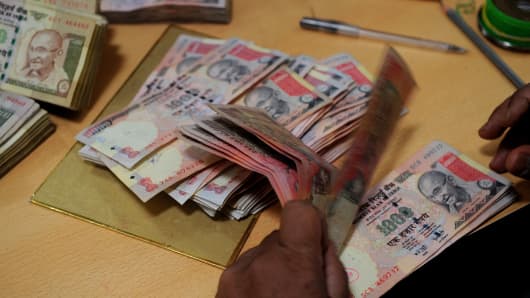The plunging rupee has intensified concerns over India's dreary economy and raised the question whether Asia's third largest sovereign credit rating may be downgraded to "junk" status in the coming months.
Ratings agency Standard and Poor's (S&P), which cut its outlook on the country's BBB- rating to negative last year, told CNBC it continues to see a one-in-three chance of a downgrade in the next 1-2 years.
(Read more: Why this unloved market is due for a bounce)
However, if weak sentiment causes business financing conditions and investment growth to deteriorate further - putting the country's longer-term growth prospects at risk - the likelihood of a downgrade will increase, S&P said.
"India's long term growth prospects could weaken on a sustained basis, with negative implications for the sovereign credit fundamentals," Kim Eng Tan, senior director, Asia-Pacific Sovereign Ratings, S&P told CNBC this week.





